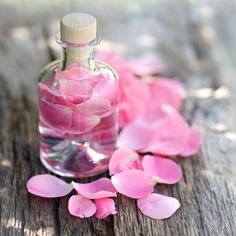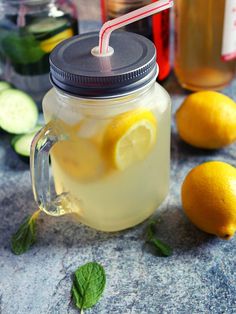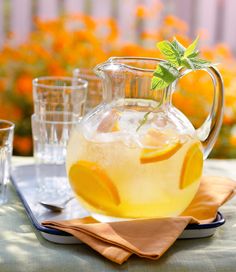Rose Water's Substitutes

Rose Water is vital for adding a flowery scent to several baked goods and savory foods. Not overpowering, but just enough to provide a sense of floral deliciousness to the cuisine.
It’s no surprise that it’s a beloved ingredient among most cooks and has long been a staple element in several cultural meals.
However, rose water is not widely available in other locations. It’s a good thing you can replace lavender essence, lemon juice, rose essence, orange water, vanilla extract, and cinnamon for it.
Substitutes for Rose Water
Let’s go through some more of these options and why using rose water in your meals is beneficial.
Lavender Essence
Surprisingly, the aroma of lavender is comparable to that of rose water. Take note of how you utilize it as a perfume in your house and how it readily wafts around, changing the entire feel.
It has the same impact when added to your favorite foods or sweets. Furthermore, they both have the same flavor.
Choose lavender to add a pleasant scent and flavor to your food. That is the greatest option available on the market. When replacing lavender essence for rose water, use one teaspoon lavender essence for one teaspoon rose water.
Lemon Juice

Although lemon juice does not have the same flowery impact as rose water, there is a workaround—just half a teaspoon of sugar for every teaspoon of lemon juice.
Instead of being excessively lemony, you’ll notice that it adds a sweeter flavor to the meal, similar to rose water. When cooked, adding sugar helps to remove the bitter flavor.
Lemon juice may also be used as a spice, topping, vinaigrette, and other things. If you don’t have a lemon on hand, lime and orange will suffice.
Rose Essence
Rose essence is quite similar to rose water. It is, nevertheless, more concentrated than rose water. The liquid portion evaporates during the extraction procedure, leaving just the essential rose juices. So it’s no surprise that most of it are offered in tiny bottles.
Use half a teaspoon of rose essence instead of two tablespoons of rose water when replacing. A few drops may already go a long way, so there’s no need to be overly liberal with the amount.
Orange Water

Orange water underwent the same treatment as rose water. It’s made of crushed orange blossoms and distilled water, which are both blended and left away for an extended period. Let the authentic taste and scent seep through the beverage to achieve the greatest effects.
Because orange is more on the fruity side, even if the flowery aroma was removed from its blooms, you will never receive it. This might be an excellent alternative to rose water if you don’t mind the citrus flavor.
Apply the same approach I described for lemon juice. Replace one teaspoon of rose water with one teaspoon of orange water. After that, add half a teaspoon of sugar. You may get a fruity aroma, but it will still have a sweet taste to it.
Vanilla Extract
When the odds are stacked against you, I’m sure you have a small bottle of vanilla essence at home. It’s the most ubiquitous and easily accessible baking ingredient that everyone possesses. When you don’t have any other options, vanilla extract solves your culinary difficulties.
Although it lacks a flowery aroma and flavor, vanilla extract has an undeniably sweet perfume ideal for any baked food. Because of the “sweet-smell,” I don’t suggest savory recipes.
Even a few drops of it may make a difference in the meal. Replace one teaspoon rose water with half a teaspoon vanilla essence.
Cinnamon

Cinnamon is one of my favorite spices, particularly for baking. It’s fragrant, sweet, and provides warmth that you won’t find in any other spice.
It also works well as a replacement for rose water. Although there is no flower impact, its sweetness is so intense that your family and friends will not notice the difference.
Because cinnamon is stronger and sweeter, use only a tiny quantity. Because most desserts already contain milk and sugar, adding extra cinnamon may result in an overly sweet meal.
Use half a teaspoon of cinnamon instead of a teaspoon of rose water. That’s all the alternatives to rose water you can use if you don’t have any on hand.
However, if you really must have the quality and impact of rose water, there is another choice. Here’s a simple recipe for you to make your rose water.
Recipe for Homemade Rose Water
Ingredients:
Ten medium-sized rose stems
distilled water (two liters)
Two airtight jars/bottles
Instructions:
Remove all rose petals off the stems and place them in a large colander.
To remove any chemicals or dirt from the petals, wash them with lukewarm water.
Fill a big container halfway with cleaned petals. Then, combine it with the distilled water.
Take a medium saucepan on medium heat, bring the water to a boil. When it reaches a boil, reduce the heat to a low setting and cover the pot to keep it warm.
Allow at least 30 minutes for the rosewater mixture to simmer.
Strain the rose petals from the distilled water after 30 minutes. Remove the rose petals and set the water aside to cool.
Wait two weeks before using the rose water after storing it in an airtight bottle or jar.
That’s all there is to it! It’s not difficult to create, but like excellent wine, patience is required to guarantee that you receive the finest taste and scent from the rose water.
Share this recipe with anybody you know who enjoys using rose water in their favorite foods. It’s preferable to have your supply than to run out the next time you need it.











